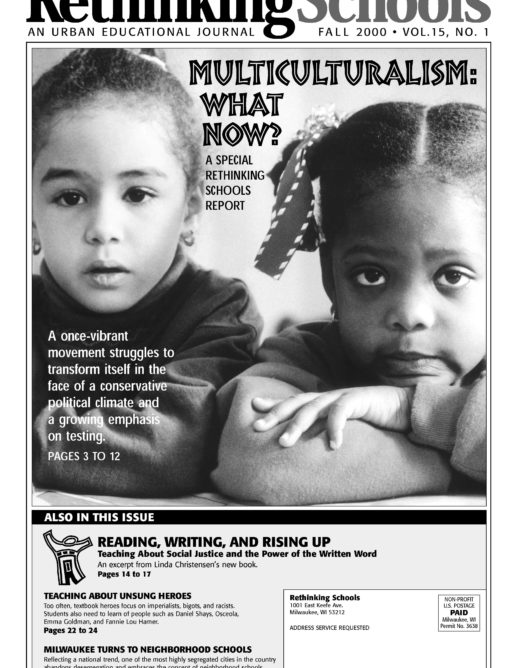At Best, Silly, At Worst, Racist
The Massachusetts 10th-grade world history test is a Eurocentric exercise in travel pursuit.
The difference between a diploma and doomsday cannot possibly come down to a Byzantine trivial pursuit. That is, unless you can make the implausible case that six or seven years from now, when these students are trembling job applicants, their bosses will look them dead in the eye and actually ask:
“Hmmm, your resume looks interesting, but to get this job you must tell me why King Henry issued the Edict of Nantes, the purpose of the Treaty of Tordesillas, and the function of the lord of the estate in medieval Europe.”
Those are real – or surreal – requests of students from last month’s Massachusetts Comprehensive Assessment System (MCAS) 10th-grade history and social sciences test. Some educators let me read the full test last week.
Many parents, educators, and business leaders are already concerned about the more subjective aspects of the MCAS. Some have called for any high-stakes testing for graduation in 2003 to be limited to basic literacy and math.
The 10th-grade history test should call into question the political intentions of the entire test. At best, it is silly. At worst,it is racist.
The test, which focuses on “world” history, has 57 items. There are 12 slightly different forms of the test. Of the 57 items, about 40 refer to Europe, from the Byzantine Empire to the Cold War. Five are questions about capitalism. Only 12 are about the rest of the world.
For Europe, students needed specifics on wars, innovations, cities, and individual writers, economists, and artists. They had to know, “In 1429, which military commander led a French army that defeated the English at Orleans? A. Joan of Arc; B. Catherine the Great; C. Napoleon Bonaparte; D. Charlemagne.”
In fact, the MCAS really should be renamed the Mutual Charlemagne Admiration Society. The founder of the first empire in western Europe after the fall of Rome was also in this question: “Many separate groups attacked Charlemagne’s empire. The fiercest of these groups came from the north and was known as the A. Magyars; B. Visigoths; C. Huns; D. Vikings.”
Students were given detailed maps of Eurasia and asked if the dotted routes represent the Crusades or the spice trade. About all students got for Africa was a bare outline of the continent and asked to point out the desert – where there are no people to have a history. Asians are reduced to shoguns, samurais, and the split between China and Taiwan. Latin America is but a colonial appendage of Europe, and women, other than Joan of Arc and Catherine the Great, are almost invisible.
One teacher told me the heads of black and brown students of color slumped lower and lower during the history test. “We work so hard at teaching them useful information and critical thinking skills and then we give them a test that tells them that their people are nothing,” she said. “It’s crushing.”
Telling African-American and Latino students their history is worth nothing is having a crushing effect. The failure rate for African-American and Latino students on last year’s 8th-grade history test was 77 percent and 85 percent, respectively, higher than even their well-publicized failure rates in math. The effect is so crushing that questions must be answered before the state can proceed to the 2003 deadline for any section of the test. It is not enough to can the history part, for it may also be a Freudian slip about math and English. Is it a mere coincidence that the same state that so easily renders people of color nonexistent in world history also has no plan to give failing students the courses they need to pass the 10th grade math test?
A test that shows if students are literate is fine. A test that is mired in a trivially narrow vision of yesterday is cruel. American thinker William James said, “Things learned thus in a few hours, on one occasion, for one purpose, cannot possibly have formed many associations with other things in the mind. Their brain-processes are led into by few paths, and are relatively little liable to be awakened again. Speedy oblivion is the almost inevitable fate of all that is committed to memory in this simple way.”
Speedy oblivion is where the MCAS history test should go. On Friday, you can decide for yourself with questions from the 10th grade MCAS history and social sciences test (see the related article).

